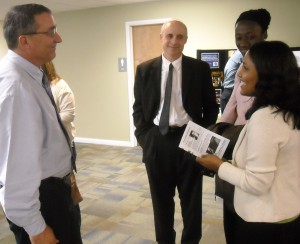
Questions on the table:
- What are the spiritual principles for our attitude and our actions in pursuing God’s calling?
- How are attitude, action and audience part of our calling?
The Attitude of the Called
Our eyes and our heart should be on our God. Criticism and cynicism do not have a place in our calling.
Mother (Teresa) believed that criticism weakens our will to obey, and that our will is the only thing that God will not take from us. Mother Teresa wrote to her sisters, “It is much easier to conquer a country than to conquer ourselves. Every act of disobedience weakens my spiritual life. It is like a wound letting out every drop of one’s blood. Nothing can cause this havoc in our spiritual life as quickly as disobedience” (Mary Poplin. Finding Calcutta: What Mother Teresa Taught Me About Meaningful Work and Service. InterVarsity Press. 2008, 64).
After the above statement, Mary Poplin presents her insights into the damage rebelliousness caused in her spiritual life.
I wondered how much damage had been done to my spiritual life for having joined, enjoyed and taught rebelliousness. I remembered the fear and exhilaration of attending protests of all kinds and the self-satisfied arrogance of arguing against almost every political act, generally with great ignorance, as well. My rebelliousness did not change things for the better. My rebelliousness set my will free of boundaries, and in so doing, I was actually less free and more dependent on being like everyone else around me. My rebellion had taken me a long way in the wrong direction. Now I was called to be a servant of Christ. As twentieth-century philosopher Simone Weil said, “We have to make ourselves slaves and beggars to follow Christ” (64).
What is the cost of becoming slaves?
Mother Teresa knew that sacrifice — to be real — must cost; we must empty ourselves of something we would rather keep. She said to a group of volunteers, “God takes care of His poor people through us. . . . Remain as ’empty’ as possible, so that God can fill you (Poplin, 126).
God the Father fills us as we are open to him in prayer, study of His Word, being part of and accountable to the Body of Christ.
The Actions of the Called
Imitate Jesus; imitate other disciples of Christ, become models for others (1 Thessalonians 1:1-10). Do not become like the older brother (Luke 15:11-32).
- Work in the Spirit of Christ – again, avoid criticism of others and say what is necessary to get the work done.
Mother taught that “criciticsm is nothing less than dressed up pride. It eats up all the love of God. A truly generous soul must never stoop to criticism. As a rule, people who critcize never do it openly, but go about doing it in a whisper. Refrain from prejudice, which means to set your mind against somebody. It is very sad when it becomes part of our lives.”
I had originally thought that part of the peace I felt around the Missionaries was their strong tendency to introversion and prayer. I was to learn very late in my trip that the other reason they did not speak much with us is that they had a rule that no one is to speak during the day’s work unless it is necessary to get the work done; rather, they are to pray unceasingly. I thought how different most workplaces, my own included, would be with this simple rule. Even though I know the effect of my various emotions on others and on my work, how hard it is to work simply in the spirit of Christ (Poplin, p.47).
- Work with eyes always on the eternal. This does not mean being “lost” in the clouds. Mother Teresa’s work was always geared to give to the poor now, but the basis for giving was salvation found in God’s action through the Missionaries of Charity.
The Audience of One
Mother Teresa encouraged a singular devotion to God in the work of the Missionaries of Charity. Sharing in His sacrifice through our work; pleasing God through our work is what matters. In Chapter 9 of The Call: Finding and Fulfilling the Central Purpose of Your Life (entitled “The Audience of One”), Os Guinness likewise encourages us in performing our work for God and His purposes alone. Everything else is superfluous. We don’t have to satisfy others. We should work as if what we do is done only before God and for God. May it be so in all aspects of our life, to the glory of God!
Next week: “Call awareness” without losing dependence upon the Caller.

Note: Genesis of the series: You’ll notice the influence of Head, Heart & Hands, Os Guiness’ “The Call: Finding and Fulfilling the Central Purpose of Your Life,” and “Why Christian Apologetics?”* As with the Head, Heart & Hands series, the material is drawn from an adult elective at Elizabethtown Brethren in Christ Church (EBIC) facilitated by Kevin Milligan in coordination with the author speaking for our Christian Scholar Series (an EBIC-ESN partnership). In Spring 2011, Mary Poplin spoke in Pittsburgh, South Central PA, and Baltimore as part of an ESN partnership with Undergraduate Ministry and Graduate & Faculty Ministry. To God be the glory!
*To skim or not to skim: A ‘case’ study of “Christian Apologetics” and Why Christian Apologetics – Hell on Christian Apologetics: A Comprehensive Case for the Biblical Faith (IVP. 2011). More posts on topic coming.
Tom enjoys daily conversations regarding living out the Biblical Story with his wife Theresa and their four girls, around the block, at Elizabethtown Brethren in Christ Church (where he teaches adult electives and co-leads a small group), among healthcare professionals as the Northeast Regional Director for the Christian Medical & Dental Associations (CMDA), and in higher ed as a volunteer with the Emerging Scholars Network (ESN). For a number of years, the Christian Medical Society / CMDA at Penn State College of Medicine was the hub of his ministry with CMDA. Note: Tom served with InterVarsity Christian Fellowship / USA for 20+ years, including 6+ years as the Associate Director of ESN. He has written for the ESN blog from its launch in August 2008. He has studied Biology (B.S.), Higher Education (M.A.), Spiritual Direction (Certificate), Spiritual Formation (M.A.R.), Ministry to Emerging Generations (D.Min.). To God be the glory!

Leave a Reply